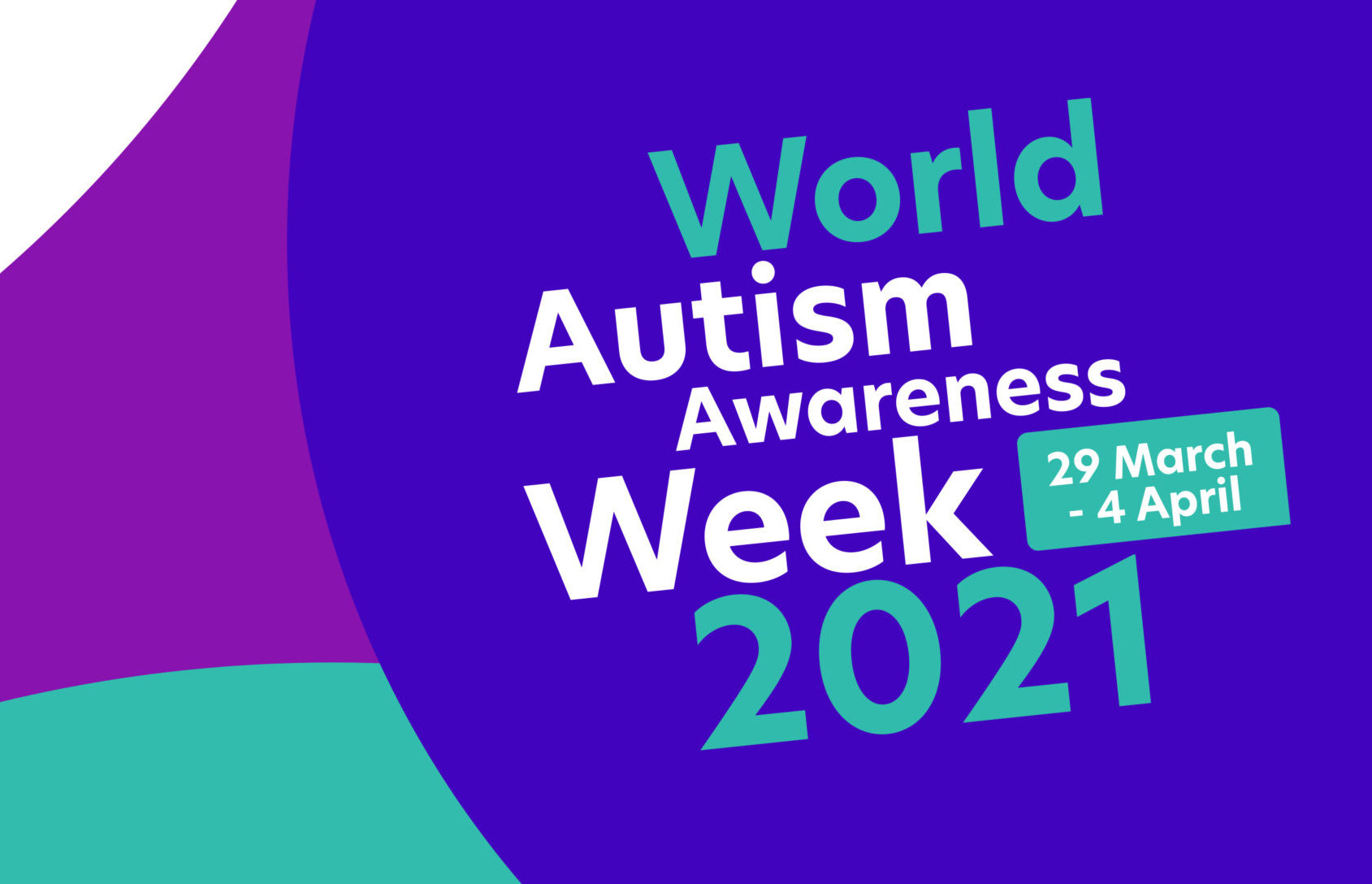
My journey to learn about autism – we all need support sometimes
In support of World Autism Awareness Week 2021, Divisional Engagement Executive, Laura Hughes shares her experience and journey to learn more about Autism. Since my son was a toddler, I’ve known there was a difference there. His speech was delayed, he would get really upset when bought new clothes and would refuse to wear them, […]
In support of World Autism Awareness Week 2021, Divisional Engagement Executive, Laura Hughes shares her experience and journey to learn more about Autism.
Since my son was a toddler, I’ve known there was a difference there. His speech was delayed, he would get really upset when bought new clothes and would refuse to wear them, he’d meltdown if we didn’t walk/drive a specific way when going to regular places, he threw everything – he didn’t put things down – toys, drinks, shoes, everything would be thrown around the house constantly and his meltdowns could be so explosive to the point of him being physically sick.
I started getting comments from friends and family members about how his “behaviour was awful”, “I should be stricter”, “I would never let my child behave like that” and “what’s wrong with him?”.
I went to the GP and asked about autism or ADHD, or what it could be as I was clueless. I was met with “he doesn’t look autistic” and “you won’t get a referral, you need to speak to the nursery”, and that was that door closed! I went to the nursery and they were supportive. They listened and tried to help me put together evidence, but it wasn’t enough to get any help. The speech and language therapy referral was accepted, then he was discharged after one appointment. All other referrals were refused with no offer of what I could do next.
I became very ashamed – maybe everyone was right – I was a bad parent that didn’t know how to help my son. I began questioning everything – what did I do wrong? Was it because I went back to work? Should I be stricter? Why can’t I make this better? I was a failure. We stopped seeing people or going places and we became very isolated. Family life was hard and stressful. All of us were feeling the strain – me, my partner, my daughter and son, but we had no idea what to do or where to go for help.
Then, two years ago in 2019, I was asked to support the first World Autism Awareness Week campaign at Agilisys and I am so pleased I did! I was introduced to colleagues from across the business who had autistic children or were autistic themselves, and they really opened my eyes to a world which, quite frankly, I was very naïve about.
As I listened to each of their journeys and researched the information we wanted to raise awareness of, I had my ‘lightbulb’ moment.
I opened up to my colleagues and explained what had happened and what challenges we faced, and was met with so much understanding, and so much advice on where to go and who to speak to. The more articles, research, and blogs I read, the more I began to realise it’s not just me, and I started my journey to learn everything I possible could!
Starting school
Fast forward a few months and my son was starting school. On advice from my fabulous colleagues, I put everything in writing to the school to make them as aware as possible of what was going on. I told them I was seeking a referral to the paediatrician and I needed their help in gathering evidence. I warned them he was a flight risk and that they needed eyes in the back of their heads! The nursery wrote to them and gave so much detail of how they could offer support.
Initially I was not taken seriously at all – I was met with “it’s first days of school nerves, you’ll be ok” and I’m 99% sure they didn’t read any of the information myself or the nursery sent them. To be fair, for the first few weeks it was all ok, then the cracks began to show and school really started to see what was going on. He escaped on more than one occasion – to the point they had to reinforce the locks on the gates and install locks on classroom doors (which he figured out how to open!). He would have intense meltdowns – he’d throw things around, flip tables in the classroom, hit, kick and bite anyone that was in the vicinity. On one occasion he even threw a brick at a teacher and shared some ‘colourful’ language! He ignored the teachers and refused to engage with any work, often going into a fantasy land where he became a superhero that had to fight all the ‘bad guys’ (aka teachers!). Nobody there had any authority over him. Within three months of starting school, he’d been suspended for the first time (with many more to follow), and I was asked to attend a positive parenting course, which I did.
Home life was out of control, my son was suffering, and I just could not seem to get help and none of the ‘strategies’ I had researched were helping. Depression and anxiety kicked in and few months later I found myself at the GP seeking support for my own mental health. I had been trying to get help for the last two years and was still no closer to the referrals we so desperately needed. I had spent the last year researching autism and trying out ways to support my son, and I sought a private advice for Sensory Processing Disorder (SPD) so I could learn how to support his sensory needs, but nothing really seemed to help, he was not coping at school or at home and would not engage with us (unless it was about Batman or Minecraft!)
Autism Awareness
In February 2020, I began working with some wonderful people on our second autism awareness campaign and through this I was able to learn so much more about how I could get the help we needed. All the research I had done doesn’t compare to the real life of those that have gone through these experiences.
Through my research and these conversations, I came to the realisation that it’s likely my son has Pathological Demand Avoidance (PDA) – a profile of autism, SPD and Attention Deficit Hyperactivity Disorder (ADHD). This was why nothing I tried was working, I wasn’t doing the right things to help. This new-found information gave me back my fight and I was determined to get the help we needed. I read through every school and local authority policy, and researched legal advice from my local SENDIAS, I even went as far as to read the legislation. I drafted my letter to the school requesting a meeting with the teacher, Head and SENCo. I compiled a list of information I had provided them when he started school which they were required to refer to and a list of evidence I needed them to gather to help me get the referrals we needed. I quoted their own and the local authority policies on what they needed to be doing and by when and provided a wealth of resources from the National Autistic Society and PDA Society, along with a summary and a detailed breakdown of how it related to my son and what they could to help. I had to become very formal with them to get the results we needed.
It worked! We got the referrals we needed! The Paediatrician, Educational Psychologist and Occupational Therapist, they all accepted! And then we went into lockdown due to COVID and everything was postponed indefinitely. As with most people, going into lockdown was a bit of a turbulent time to say the least. Any routines we had went out the window and with so much stress, worry and isolation things became very taxing. It was so frustrating that we’d finally got to the point where people accepted that we needed help, but we still were unable to access it and we’re now isolated from everyone.
A fresh start
Those first few weeks were hard. He was really struggling. His anxiety was sky high, and meltdowns were happening daily. I was trying to help both my children with their education, both with very different needs, with little success. I was franticly researching teaching methods for children with SEN to try and gain some engagement and it just did not work. After a few weeks of battling through I decided enough was enough.
I stopped distance learning and decided to un-school, then home school. I asked his teachers to send me the topics they were working on that term and told them I’d fit it in when he was able to. His mental health is far more important than fighting to complete phonics! I removed all the reward charts and timetables from his view and put away anything that reminded him of school. After a couple of weeks with no pressure to do any formal schoolwork and a lot of sensory breaks throughout the day, meltdowns reduced significantly. He didn’t have a single meltdown for over seven weeks!
He was happy, he started engaging with learning and was asking to do activities such as reading books and science experiments. He would talk to us and would no longer avoid questions or activities we suggested. He rarely escaped into his fantasy land and life calmed down so much. Lockdown really became a positive for us.
I stopped researching ‘teaching methods’ and researched un-school and home school projects. This time at home with my children really gave me the opportunity to learn how best to support them, and the time to try out all the unconventional methods I’d learnt. This was so valuable when it came to starting school again. The teachers were able to see for themselves that by implementing strategies for PDA and providing proactive sensory breaks rather than always reacting to his ‘behaviour’ really was working and he is showing brilliant progress. This gave so much evidence for the professionals we were still waiting to see too.
Our journey
Speaking to my colleagues and really learning how to be my little boys voice gave me the tools to make such a difference to his life. It helped me to know what to look for, where to go to get trusted information and now, as we go into our third autism awareness week, we have just had an appointment with the paediatrician and are finally on the ASD and ADHD pathways.
It’s taken four years to get to this point and we are still so early on in our journey. Just imagine how long this could take if I hadn’t began working on this awareness campaign. I would never have known where to look for help or advice and the trauma he could have suffered could have been immense.
I feel incredibly lucky to have this support around me and will be forever grateful to those that have helped me and my son to get the help we needed.
It is such a long, hard road to get professional help, but it is so important to reach out. Don’t do what I did and walk that road alone. Talk to your family, friends and colleagues, and if your company has them, join support networks such as the Disability Network and Carer’s Network to meet others that are going through/have been through similar journeys to you. You are not alone.
Discover our latest blogs to read more stories from people at Agilisys.




